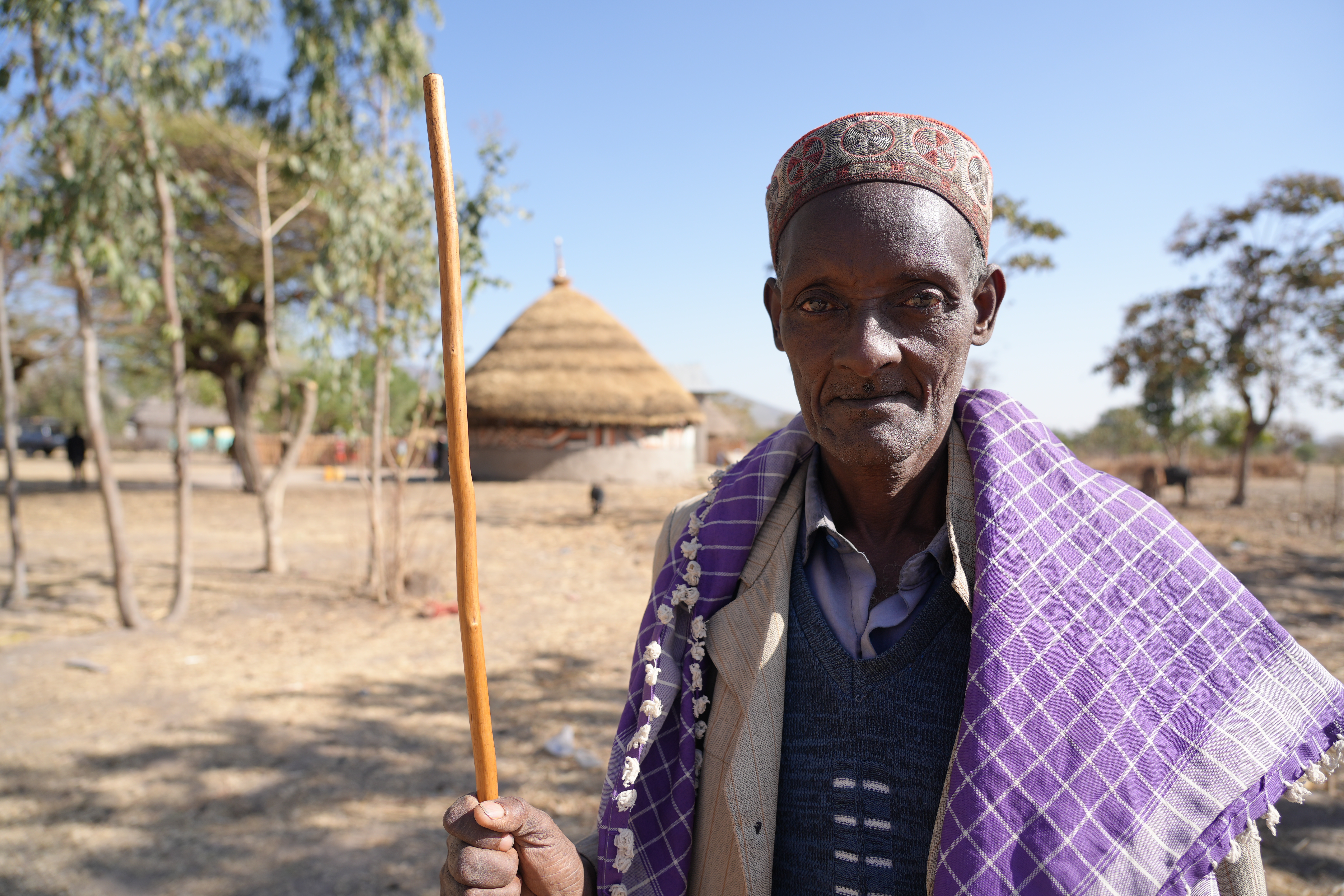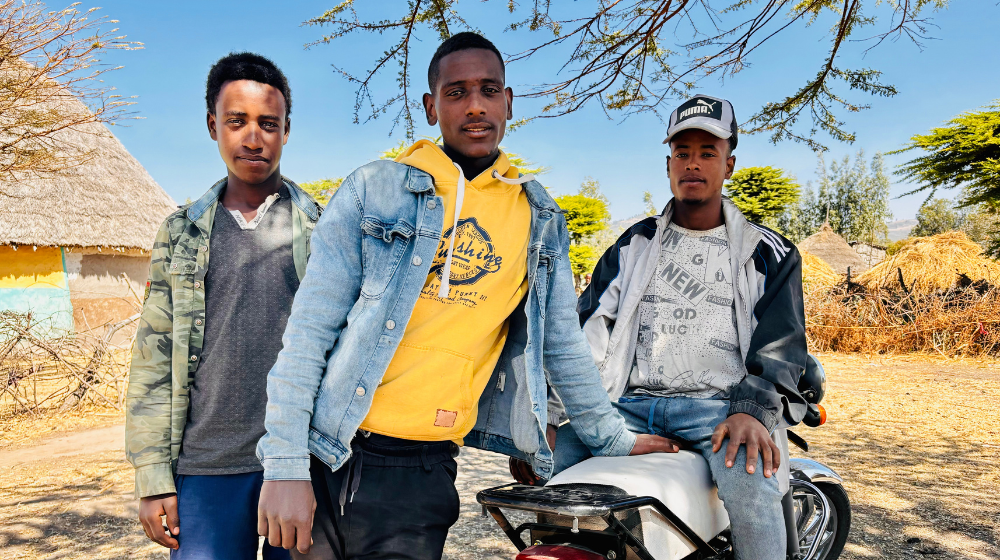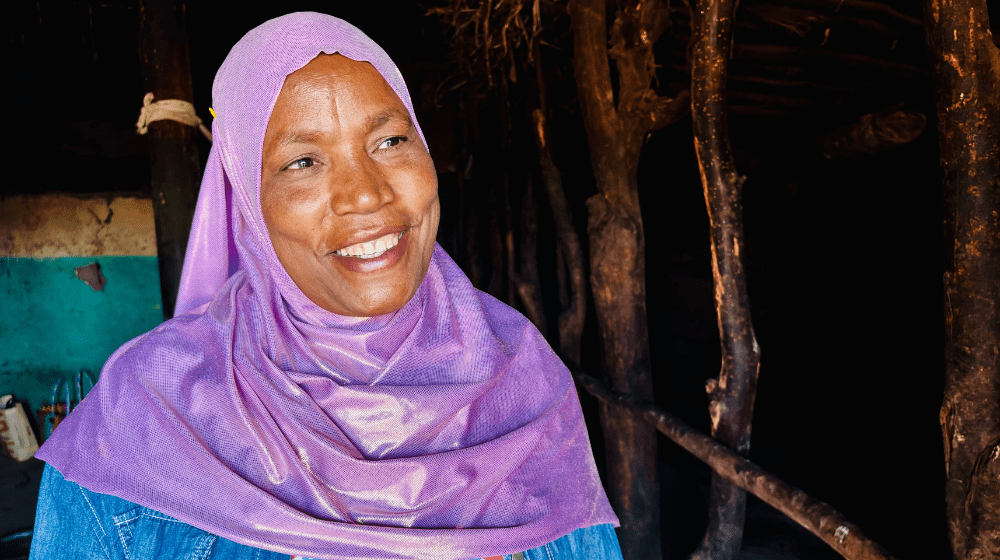Four years ago, on a Sunday morning in Dalocha Woreda, Central Ethiopia region, Nuritu Sirbar, Head of the Dalocha district/woreda Women, and Children's Affairs Office had a question for community and religious leaders and elders who gathered under a tree to discuss the cultural and religious significance of Female Genital Mutilation (FGM). She asked them to justify it. ''Is it religious?'' she asked the religious leaders. The scriptures did not provide them with a justification.
Instead, they insisted that it's a tradition and it's been practiced and celebrated for generations. “We have to keep tradition. Without it, we will lose our identity,'' they argued. But Nuritu was determined. She challenges them to list the benefits of FGM. ''How does it improve life? Does it make society better, healthier, happier? Does it make women better daughters, wives, and mothers?''

Elders couldn't ignore the information that women who undergo FGM have a higher chance of suffering from childbirth and developing fistulas. Maternal mortality has been common in the area, and they know FGM contributes to that. They are also aware that their women have less appetite for sexual intimacy, making marriages difficult and, in some cases, leading to divorce. They are the ones who mediate conflicts in marriage and settle divorces.
In addition, they know what it is like for children living in an unhappy and broken home.
“They couldn’t argue more,” Nuritu said. “Yes, some were stubborn and stuck to the line that it’s tradition and has to go on. But most agreed that the time to reconsider and change is now.”
Simrimula Hamiza, an elder in the community was at that meeting. ''I thought I knew why we enforce FGM. But when asked at that meeting, I just didn’t have a good enough answer. For the first time, I realized that we can't defend the practice by simply saying it’s a tradition. Young people ask why and look for an answer in science, not in the old tales,’’ he said. He had decided his youngest daughter would not be cut. ‘’It wasn’t easy to make that decision. I felt I was compromising her future and that she might not get a husband. But, it was time to change, and I had to practice what I preach,’’ he said.
Support from UNFPA-UNICEF Joint Programme on the Elimination of FGM
With support from the UNFPA-UNICEF Joint Programme on the Elimination of Female Genital Mutilation, Nuritu's office has been raising awareness for the past four years through community-led social mobilization, schools, women's groups, and youth organizations.
In partnership with the regional Bureau of Women and Children Affairs, the Joint Programme provides capacity development training and necessary materials to community-based protection structures. The program supports activities that empower girls and families as well as increase community engagement to end FGM. So far, there are 60 Community Conversation (CC) groups, with a membership of 4,200 individuals (2,100 females and 2,100 males) in the woreda. These groups meet twice a month to discuss and deliberate on ending FGM and child marriage. The program invests in capacity building, data generation, and use to facilitate advocacy and social and behavioral change in the community.
Change is in the air

“There are changes. Now, we register all the girls at preschool and work with their parents to make sure they don’t go through FGM”.
Nuritu also works with youth groups and schools to raise awareness among boys and young men.
There has been progress on this. Young men are now understanding their power to safeguard women.
Tofik Ibrahim, 23, is planning his wedding. “ At first, my fiance was worried I might not want to get married because she was uncut. She was surprised to learn that I have the opposite view on the issue. I am glad she didn’t have to go through that painful experience that might jeopardize our life together,” he said. Two of his friends, Tofik Etala and Kaire Essac, agree with him. As they prepare to become his groomsmen and plan their future, they say the pain and suffering of girls shouldn’t be celebrated. “We are aware that older people might judge us. But it’s time to create a new culture that works for us. The question should be what serves us and helps us to make a happy family and healthy children,” Karia said.
“Young men influence the culture to a great length because their preference dictates what is acceptable for a young girl. There was a strong tendency among young men to prefer girls who are cut for marriage. They ask her family whether she is cut or not before the marriage happens. We are convincing young men to choose the opposite. We are explaining the side effects, how their wives might suffer during childbirth, and they are listening,” Nuritu said.
Nuritu is realistic that it might take a long time before they achieve a complete attitude change. “I hope that FGM will become a taboo. Just as being uncut brought shame and isolation to the girls and their parents in the past, I wish to reverse that in the future. We are already on the right track. There is a change in the air,” she said.


